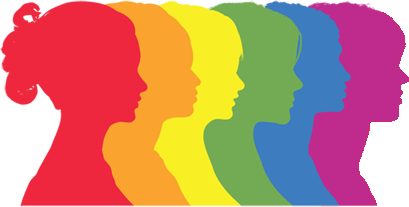Problems with Gender Stereotypes | April 14, 2016 ICRP
 Sexual Identity is often confused with ideas of traditional
"masculinity or femininity", or gender stereotypes, as definitions. The premise comes from that men are [supposed to be] masculine and women are [supposed to be] feminine. It is problematic when men and women who do not fit into their
"assigned" sexual identities are seen as less of a man/woman/person.
Sexual Identity is often confused with ideas of traditional
"masculinity or femininity", or gender stereotypes, as definitions. The premise comes from that men are [supposed to be] masculine and women are [supposed to be] feminine. It is problematic when men and women who do not fit into their
"assigned" sexual identities are seen as less of a man/woman/person.
Many people were, and still are, raised by their family and their community to fit into these moulds of gender norms based on their sex. For example, a man is taught not to be emotional because it is not masculine, while a woman is taught not to be aggressive because it is not feminine. When people glue these stereotypes to sexual identity, it further cements superfluous traits to gender identity, such as the idea that men must be stronger than women.
I personally believe that anyone can possess any kind of behavioural trait, whether it is defined as a masculine or feminine trait, despite their sexual identity. Equating masculinity with being a man and femininity with being a women erroneously equates sexual identity and gender, resulting in unfair and unequal treatment and expectations.
Human rights activists, especially those who are working on women’s rights and LGBTQ+ rights, are facing difficulties in their field of work due to the existing gender stereotypes. Both women’s rights activists and LGBTQ+ rights activists still have to deal with breaking the gender stereotypes within the society to further their goals in achieving equality for all. Women’s rights activists face the difficulty of people seeing their actions as a threat to men’s power. As for LGBTQ+ rights activists, their work is being affected While for LGBTQ+ rights activists, gender stereotypes play a big role on hindering their work by creating the prejudice that LGBTQ+ issues are against the traditional way of human existence, of being a man or a woman. Transgender people are facing more problems based on their sexual identity.
Gender stereotypes do create sexism, discrimination, and
violence if they are equated with sexual identity. Gender stereotypes
create those problems simply by existing and having people to still
believe in the traditional gender roles. I believe that masculinity and
femininity are human behaviour traits that everyone has despite their
sexual identity. However, there are plenty of people who still believe
in gender stereotypes. By highlighting the difference between sexual
identities and gender stereotypes is still the bigger issue to tackle
within the society. The fight for equality for everyone will be affected
tremendously if people are able to separate sexual identities and gender
stereotypes.
* * *
-icrp-


